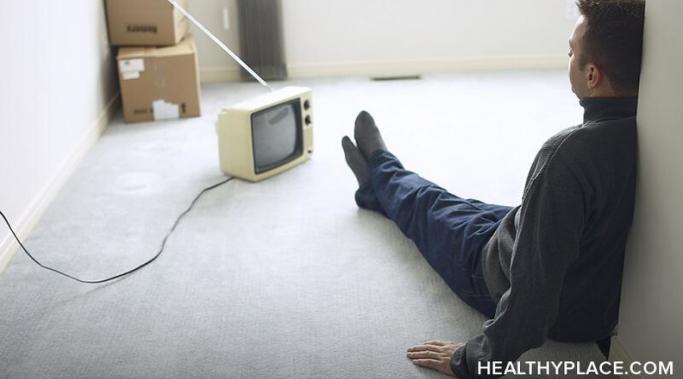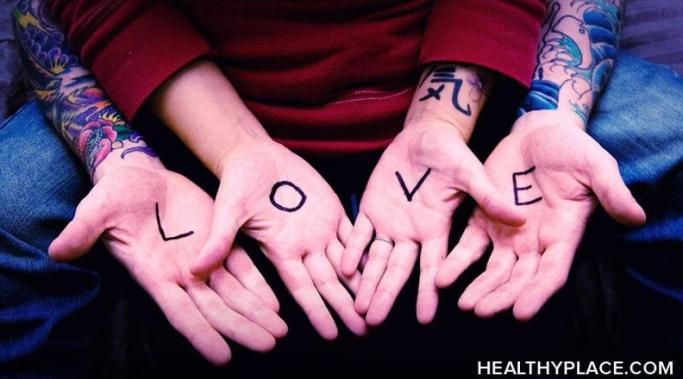This post was derived from a couple of different sources. One, a few insightful comments readers made on why living with a mental illness makes us exhausted. This post focused on a few of the reasons why mental illness can cause exhaustion in those who live with, and experience it, on a daily basis. These readers stressed that they struggled with exhaustion and pain living with, and supporting, those who struggle with mental health.
Two, comments from people living with mental illness that could relate to my post, could relate to the feelings surrounding mental illness and the coinciding exhaustion (Can People Without a Mental Illness Understand Us?). I started thinking and decided that this topic should be explored--both sides of it.
Recovering Relationships
I feel like I am doing a lot of apologizing lately. I am sick of saying: "I am sorry", "Sorry, I did not mean it", "Please forgive me" or this one is creative: "Please, let me steam clean your carpets because I am oh so sorry I called you a choice word when we were fighting...Did you need to borrow any money? Like my new leather boots? Take them. Because, dammit, I am so sorry!"
Do. Not. Apologize. For. Living. With. A. Mental Illness.
Remember that brand Nike and their slogan "Just Do It!" ? Well, "Don't Do It!" Instead, explain it.
"I've Met Someone New and Important, Shouldn't I explain?"
Living with a mental illness isolates us because it can make us feel as if we don't measure up to other people. To people we do not know but wish to know. Or to people we know well. Mental illness can create an isolating and lonely life, void of friendship, of meaningful relationships.
When you are diagnosed with a mental illness it can feel like your entire life has collapsed. You fight to pick up the pieces only to have them slip from your hands.
I sincerely hope you have not ever considered this. But you probably have. At some point, in our journey to recovery, we have probably felt like we need to apologize for our behavior.
The issue with feeling unlovable. The issue? It can be an issue and pardon me for being redundant here. The topic for this post was derived from a comment a reader made. This person mentioned the word unlovable in the context of mental illness. I quickly scribbled the word down and put it away for a couple days.
I open my day-timer today and see the word, UNLOVEABLE, written in large and bold text by my own hands. I sort of grimaced, watching the rain fall from a gray sky outside my window, and wondered if I really had to put it in bold, I mean, it's not as if I have no experience with feeling unlovable. I feel it often, and if you struggle with mental illness, well, perhaps you do too.
Let's pull out the good old thesaurus to attempt to define a feeling that is so prominent when you are diagnosed with mental illness:
> Singleness
>Alienation
>Isolation
Now, I usually pepper these definitions with a large amount of sarcasm because, usually, they are bloody ridiculous. Having said this, the above definitions make sense on my end. Mental Illness has alienated me, isolated me, and made me feel singular--not the same as others. That's what I want to explore in this blog: mental illness can make us feel terribly lonely and in order to recover we need to work to understand that while mental illness can make us feel isolated, we can move past it.
Mental Illness is a Lonely Disease
The diagnosis of mental illness is akin to being hit by a bulldozer. But you survive and work to carry on--to recover. It can be hard, while in the midst of things, to forget the people who have stood by our side. The people who we might have hurt when we were sick.
My Experience
I enjoy reading posts that mention the authors personal experience--it makes it real. It makes the person real. So, let me summarize twenty-six years:
Diagnosed at 12, I have been blessed with a family who never left my side, despite mental health professionals telling them to put me 'in a home.' I am their child and they could not fathom doing this. As I grew up and addiction engulfed my life, they pulled away out of necessity, quite literally waiting for me to die. I have two siblings and they needed my parents just as much as I did.
They could have given up. Many parent's do...but they waited. Waited for me to hit bottom, and bottom I did, before reclaiming my life. When I was sick, I did not understand the sacrifices they made. I did not recognize the effect my illness had on their lives, my siblings--the family dynamic. I felt angry. Alone. Unloved. Like the black sheep.
As I became better, I realized that I owe much of my life, the fact my heart is beating as I write these words, to them. I am able to express my feelings to them now, but not without guilt.
Working Through the Guilt and Embracing Those Who Love You
In the past, I wondered if a new partner would love me after knowing I had a mental illness. Of course, it is not a topic you disclose when you first meet someone: having dinner together, or watching a movie. It is probably not something you talk about three weeks later, but living with a mental illness is something that needs to be discussed.









